Serving 356 students in grades 1-6, Olson Park Elementary School ranks in the top 30% of all schools in Illinois for overall test scores (math proficiency is top 50%, and reading proficiency is top 50%).
The percentage of students achieving proficiency in math is 29% (which is higher than the Illinois state average of 28%). The percentage of students achieving proficiency in reading/language arts is 41% (which is higher than the Illinois state average of 30%).
The student:teacher ratio of 17:1 is higher than the Illinois state level of 13:1.
Minority enrollment is 31% of the student body (majority Hispanic), which is lower than the Illinois state average of 55% (majority Hispanic).
Quick Stats (2025)
- Grades: 1-6
- Enrollment: 356 students
- Student:Teacher Ratio: 17:1
- Minority Enrollment: 31%
- Overall Testing Rank: Top 30% in IL
- Math Proficiency: 29% (Top 50%)
- Reading Proficiency: 41% (Top 30%)
- Science Proficiency: 60-64% (Top 30%)
- Source: National Center for Education Statistics (NCES), IL Dept. of Education
School Overview
Olson Park Elementary School's student population of 356 students has grown by 23% over five school years.
The teacher population of 21 teachers has grown by 16% over five school years.
Grades Offered
Grades 1-6
Total Students
356 students
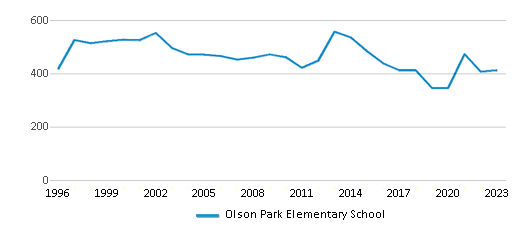
Gender %
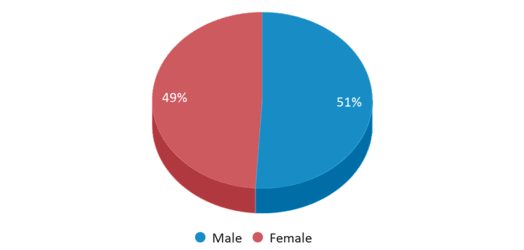
Total Classroom Teachers
21 teachers
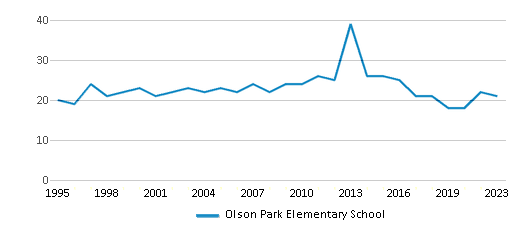
Students by Grade
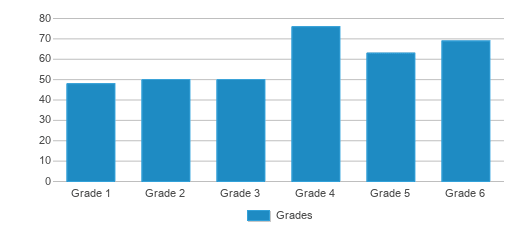
School Rankings
Olson Park Elementary School ranks within the top 30% of all 3,426 schools in Illinois (based off of combined math and reading proficiency testing data).
The diversity score of Olson Park Elementary School is 0.50, which is less than the diversity score at state average of 0.70. The school's diversity has stayed relatively flat over five school years.
Overall Testing Rank
#937 out of 3426 schools
(Top 30%)
(Top 30%)
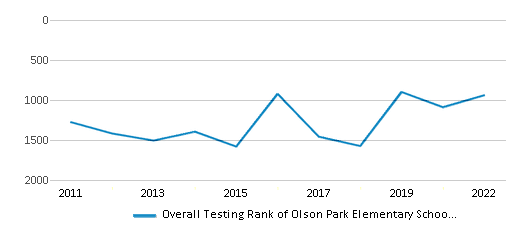
Math Test Scores (% Proficient)
(20-21)29%
28%
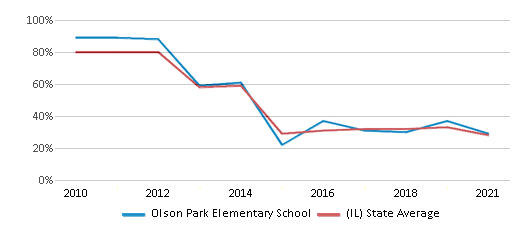
Reading/Language Arts Test Scores (% Proficient)
41%
30%
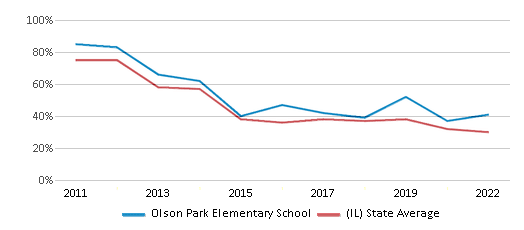
Science Test Scores (% Proficient)
60-64%
50%
Student : Teacher Ratio
17:1
13:1
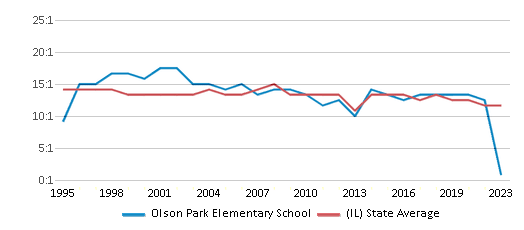
American Indian
n/a
1%
Asian
2%
6%
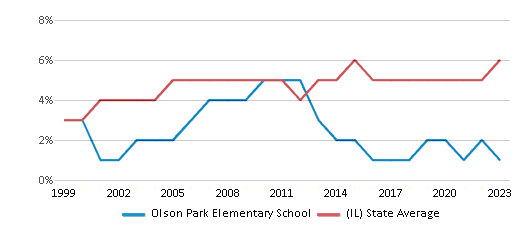
Hispanic
13%
28%
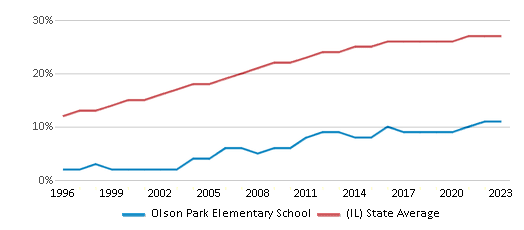
Black
6%
16%
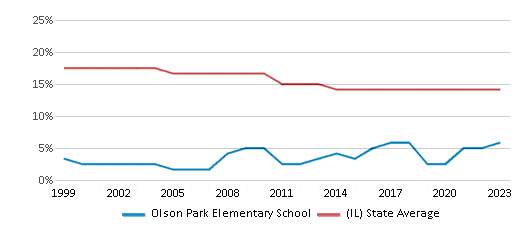
White
69%
45%
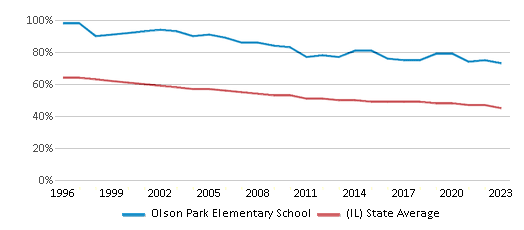
Hawaiian
n/a
n/a
Two or more races
10%
4%
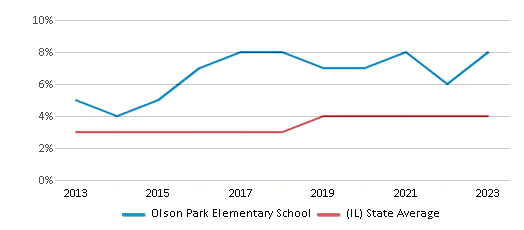
All Ethnic Groups
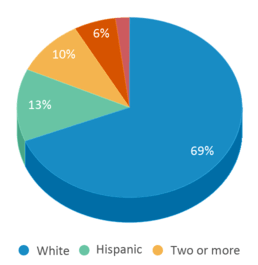
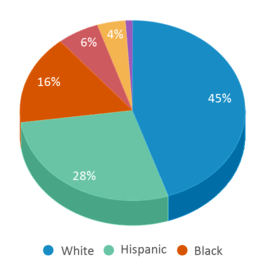
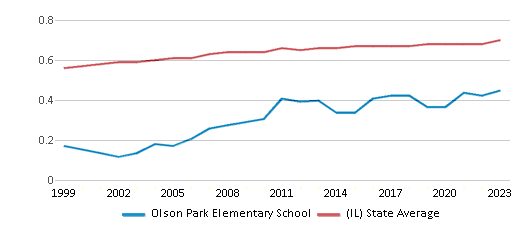
Eligible for Free Lunch
35%
43%
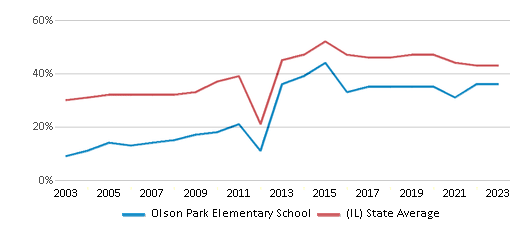
Eligible for Reduced Lunch
11%
4%
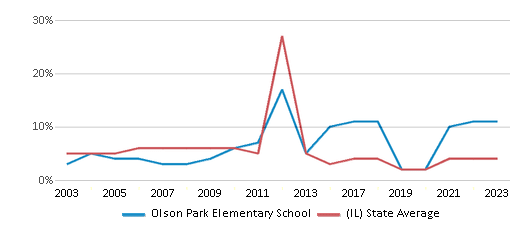
School Statewide Testing
School District Name
Source: National Center for Education Statistics (NCES), IL Dept. of Education
Profile last updated: 02/09/2025
Frequently Asked Questions
What is Olson Park Elementary School's ranking?
Olson Park Elementary School is ranked #937 out of 3,426 schools, which ranks it among the top 30% of public schools in Illinois.
What schools are Olson Park Elementary School often compared to?
Olson Park Elementary Schoolis often viewed alongside schools like Ralston Elementary School, Thurgood Marshall School by visitors of our site.
What percent of students have achieved state testing proficiency in math and reading?
29% of students have achieved math proficiency (compared to the 28% IL state average), while 41% of students have achieved reading proficiency (compared to the 30% IL state average).
How many students attend Olson Park Elementary School?
356 students attend Olson Park Elementary School.
What is the racial composition of the student body?
69% of Olson Park Elementary School students are White, 13% of students are Hispanic, 10% of students are Two or more races, 6% of students are Black, and 2% of students are Asian.
What is the student:teacher ratio of Olson Park Elementary School?
Olson Park Elementary School has a student ration of 17:1, which is higher than the Illinois state average of 13:1.
What grades does Olson Park Elementary School offer ?
Olson Park Elementary School offers enrollment in grades 1-6
What school district is Olson Park Elementary School part of?
Olson Park Elementary School is part of Harlem Ud 122 School District.
School Reviews
4 10/20/2021
I love Olson I have been there since first grade and made wonderful friend's and the teachers help so much. I am in 6 grade and my teachers make 6-grade fun and make you not worry about going to middle school next year.
2 12/3/2008
My son went to the Parker Center and it was great, but Olson Park... It's not organized at all. The principal is not very friendly. No one at the school is on one accord. There are not a whole lot of extracurricular activiites. Everyone in my subdivision told me that I would be dissapointed, but it seems as though the local people are o.k. with the school. No one ever seems to know what's going on. They depend on the little kids to tell the parents what they've been told. The facilities are very cluttered. My son teacher is really nice though.
5 11/4/2008
I have a daughter that has gone to this school for three years now. This is the best elementary school in the park. My daughter has adhd and she's bi-polar and all the teachers that she has had and has now are all very understanding and patient with her. She wasn't doing very good in 1st and 2nd grade until she started 3rd grade at Olson, now she gets A's, B's, and C's. She very proud of herself and really loves to go to school. They have done miracles and I thank them everyday.
Review Olson Park Elementary School. Reviews should be a few sentences in length. Please include any comments on:
- Quality of academic programs, teachers, and facilities
- Availability of music, art, sports and other extracurricular activities
Recent Articles

What Is A Charter School?
Explore the world of charter schools in this comprehensive guide. Learn about their history, how they operate, and the pros and cons of this educational innovation. Discover key facts about charter schools, including admission policies, demographics, and funding, as well as what to look for when considering a charter school for your child.

10 Reasons Why High School Sports Benefit Students
Discover the 10 compelling reasons why high school sports are beneficial for students. This comprehensive article explores how athletics enhance academic performance, foster personal growth, and develop crucial life skills. From improved fitness and time management to leadership development and community representation, learn why participating in high school sports can be a game-changer for students' overall success and well-being.

February 05, 2025
Understanding the U.S. Department of Education: Structure, Impact, and EvolutionWe explore how the Department of Education shapes American education, from its cabinet-level leadership to its impact on millions of students, written for general audiences seeking clarity on this vital institution.





